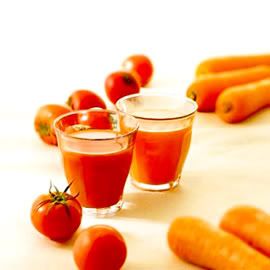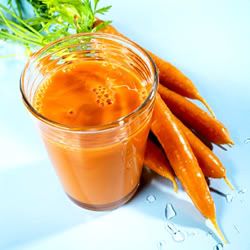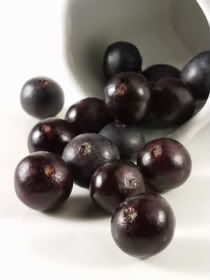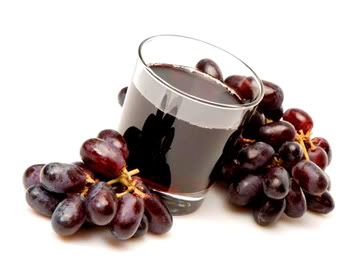
4 Healthy Reasons to Eat a Salad Today
Have you had your salad today? Eating salad almost every day may be one of the most healthy eating habits you can adopt -- and one of the simplest, experts say.
Eating salads is a super-convenient way to work in a couple of servings of vegetables and/or fruit. Green salads are on the menu of almost every restaurant. You can even buy a side salad (with lettuce, carrots and tomatoes, available with fat-free or reduced-calorie salad dressing) for a buck at many fast food chains these days. And you can make a green salad at home in 5 minutes, armed with a bag of pre-washed salad greens, a few carrots or other veggies, and a bottle of light salad dressing.
Not only that, but salads are cool, crunchy, and fun to eat (lots of textures, colors, and flavors). Most people enjoy eating salads--even kids! You can customize them to include the fruits and vegetables that appeal to you the most, and whichever ones you have on hand.
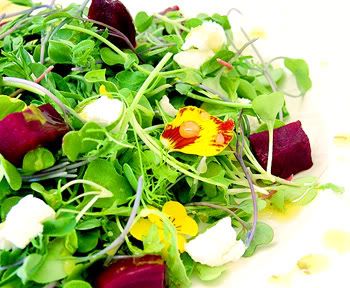
Here are four health reasons to reach for a salad today:
1. Eat Salads for the Fiber
It's hard to believe that something we can't even digest can be so good for us! Eating a high-fiber diet can help lower cholesterol levels and prevent constipation.
Not only that, eating more fiber can help you feel fuller, eat less, and ultimately lose weight.
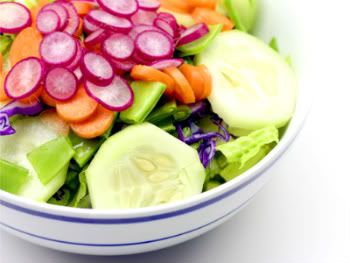
2. Eat Salads for the Health Benefits of Fruits and Vegetables
If you frequently eat green salads, you'll likely have higher blood levels of a host of powerful antioxidants (vitamin C and E, folic acid, lycopene, and alpha- and beta-carotene,) especially if your salad includes some raw vegetables. Antioxidants are substances that help protect the body from damage caused by harmful molecules called free radicals.
For years, researchers have noted a link between eating lots of fruits and vegetables and lower risks of many diseases, particularly cancer. A recent study from the National Cancer Institute suggests that people whose diets are rich in fruits and vegetables may have a lower risk of developing cancers of the head and neck -- even those who smoke and drink heavily. Foods found to be particularly protective include beans and peas, string beans, peppers, tomatoes, carrots, apples, nectarines, peaches, plums, pears, and strawberries.
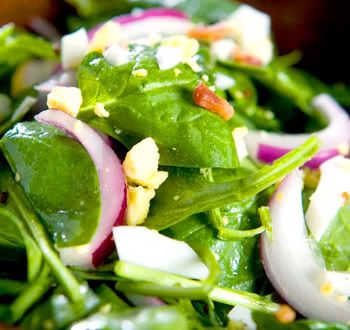
3. Eat Salads to Cut Calories and Increase Satisfaction
If losing weight is your goal, you may want to start your meals with a green salad. Studies have shown that eating a low-calorie first course, like a green salad of 150 calories or less, enhances satiety (feelings of fullness) and reduces the total number of calories eaten during the meal.
Research suggests that "bigger is better" as long as the salad is bigger in volume, not in calories - which means more veggies and less dressing and other fatty add-ons.
"We saw reductions in consumed calories when people ate salads that were 1 1/2 cups and 3 cups in volume but around 100 total calories,". The 3-cup, 100-calorie salad reduced the total calories consumed at the meal by about 55.

4. Eat Salads to Get Smart Fats
Eating a little good fat (like the monounsaturated fat found in olive oil, avocado and nuts) with your vegetables appears to help your body absorb protective phytochemicals, like lycopene from tomatoes and lutein from dark green vegetables.
A recent study from Ohio State University measured how well phytochemicals were absorbed by the body after people ate a salad of lettuce, carrot, and spinach, with or without 2 1/2 tablespoons of avocado. The avocado-eaters absorbed eight times more alpha-carotene and more than 13 times more beta-carotene (both of which are thought to help protect against cancer and heart disease) than the group eating salads without avocado.

If you dress your salad with a little olive oil, there may even be some additional years in it for you. Italian research on people aged 60 and older has suggested that a diet that includes plenty of olive oil and raw vegetables is linked to reduced mortality.
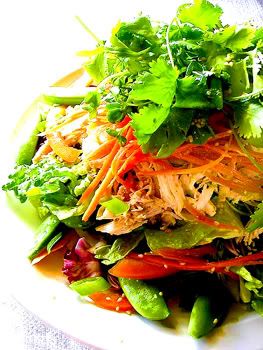
Making one simple change to your diet – adding a salad almost every day – can pay off with plenty of health benefits, right?
Any queries that I could you, please feel free to contact me at stargirlyune@gamil.com. I'm willing to serve you. See you!
Sources&Pictures: WebMD.com/ google.com
